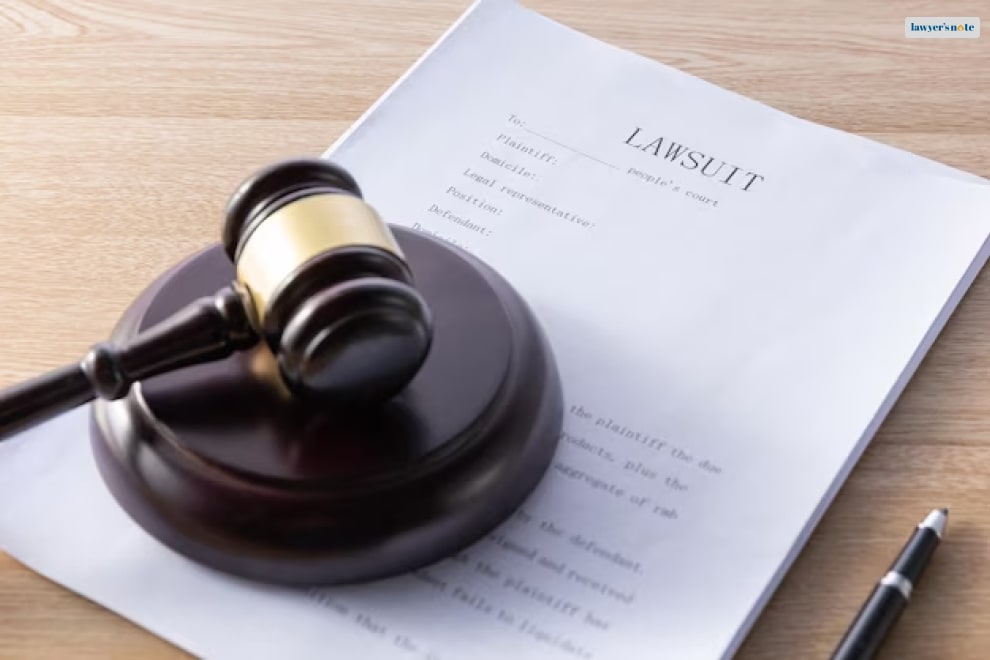Why You Need Parole Lawyers in Georgia: Expert Legal Support for Successful Outcomes
Navigating the complexities of the parole system in Georgia can be a daunting task. So, whether you seek parole for....
1336 Views

If you work in Texas and get fired without any valid reason, you may have a legal case for wrongful termination.
This article will guide you on how to sue your employer in Texas and what conditions qualify for wrongful termination in this state.

Hey there, Lone Star State folks! Let’s talk about a topic that’s got a lot of people scratching their heads – wrongful termination in Texas. We’re diving into the nitty-gritty of what it is, why it happens, and what you can do if you find yourself caught in this unfortunate situation.
Picture this: you’re working hard, minding your own business, and then out of nowhere, you get hit with that dreaded pink slip. Now, here’s the kicker – if the reason for your firing doesn’t quite cut the legal mustard, that’s wrongful termination.
Most states in the US, including the good old USA, have what’s called “at-will” employment. This means that your employer can fire you at any time, for any reason, or even for no reason at all.
Moreover, This means your employer can usually let you go for any reason or no reason at all. Seems harsh, right? But wait, there’s more to the story.

Now, Texas has its own set of rules when it comes to employment law. It’s an “at-will” state, meaning employers generally have the right to terminate an employee for any reason (barring a few exceptions we’ll get into). So, what’s the catch?
Well, there are exceptions, my friend, and they can make all the difference.
We want to assure you that it is unacceptable to be fired due to discriminatory factors such as race, color, religion, sex, national origin, age, or disability.
Moreover, In Texas, we believe in fairness and equality for all individuals. Let us help you fight for your rights.
Say you raised a concern about illegal activities in your workplace or filed a complaint against your employer.
If you have a written employment contract specifying the terms and conditions of your job, and your employer waves it away like it’s nothing, that’s a problem. Moreover, Contracts are there for a reason!
Need time off for a serious health condition or family matters? Moreover, If your employer gives you the boot instead, they might be in hot water.
Well, first off, take a deep breath. Moreover, It’s a tough spot, but you’re not alone. Here are a few steps you can take:
Write down the who, what, when, where, and why. The more details you have, the better.
These folks are like legal sherpas, guiding you through the treacherous terrain of employment law. They’ll help you figure out if you have a case.
Depending on the circumstances, you might need to file a complaint with the Texas Workforce Commission or the Equal Employment Opportunity Commission (EEOC).
Your attorney will help you decide if you should pursue a lawsuit or negotiate a settlement.

You’ve got grit, and you’re ready to stand up for your rights. Here’s your guide on how to file a wrongful termination claim in the Lone Star State.
Before you go charging into battle, you’ll need to know the lay of the land. Moreover, Understand your rights and the laws that protect you.
Like a good Texan trailblazer, you’ll need evidence to back up your claim. Document everything related to your termination. Moreover, from the moment you suspect things went sour to the final showdown.
Moreover, Make sure you’ve got all the who, what, when, where, and why details down on paper.
Now, you wouldn’t enter a bull-riding competition without a clue of what you’re doing, right? The same goes for a wrongful termination case.
Moreover, Find yourself a savvy employment attorney who knows the ins and outs of Texas employment law. They’ll be your trusty steed through this legal rodeo.
The Texas Workforce Commission (TWC) is your first stop on the Lone Star justice train. Moreover, You’ll want to file a complaint with the TWC. Moreover, They’ll investigate your claim and determine if there’s a case to be made.
Hold your horses, partner! The TWC will take some time to investigate your complaint. They’ll either give you a “Right to Sue” notice or close your case. Moreover, If they grant you the “Right to Sue,” it’s game on!
With that “Right to Sue” notice in hand, it’s time to get your boots in the courthouse. Moreover, Your attorney will help you file a lawsuit against your former employer.
Once you’re in the courtroom corral, you’ve got two options. Moreover, You can saddle up for a legal showdown, taking your case to court, or you can opt for negotiation, settling your dispute outside the legal arena. Moreover, Your attorney will guide you on which path to take.
The road to justice might be long and dusty but don’t lose hope. Moreover, Stay true to your cause and trust in your attorney to steer you in the right direction. Moreover, Remember, the law is on your side.
While you might be in an at-will employment state, there are lines your employer can’t cross.
Moreover, If you think you’ve faced wrongful termination, remember, the law’s got your back. Justice might just be waiting for you to claim it. Stay strong, and let’s tackle this challenge head-on!
Read Also:

Navigating the complexities of the parole system in Georgia can be a daunting task. So, whether you seek parole for....

The Arizona Rules of Civil Procedure are the basis for the civil framework in the state. They govern the legal....
By LawyersNote
30 Jan 2024
Firing an employee for a valid reason is termed "termination for cause." This dismissal occurs due to misconduct, fraud, or....
By LawyersNote
12 Jan 2024